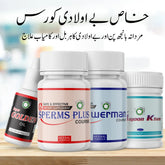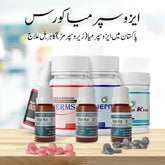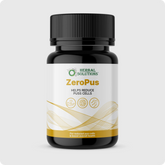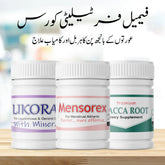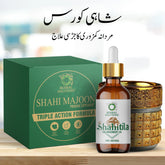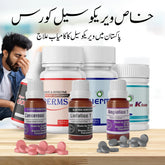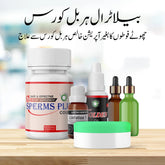Varicocele: Symptoms, Causes & Natural Treatment Solutions Guide
Varicocele: Your Complete Guide to Symptoms, Causes, and Natural Treatment Options
Varicocele is a common condition that affects millions of men worldwide, yet many remain unaware of what it is or how it impacts their health. This comprehensive guide will help you understand varicocele, recognize its symptoms, and explore effective treatment options, including natural solutions for optimal reproductive health.
What is Varicocele?
Varicocele refers to the enlargement of veins within the scrotum, similar to varicose veins that appear in the legs. These swollen veins, called the pampiniform plexus, create a feeling often described as a "bag of worms" in the scrotum. Approximately 15% of men develop varicocele, making it one of the most common urological conditions affecting male reproductive health.
The varicocele condition typically develops when faulty valves in the veins prevent proper blood flow, causing blood to pool and veins to enlarge. While varicoceles can occur on either side, they most commonly affect the left side of the scrotum due to anatomical differences in venous drainage.
Understanding Varicocele Causes
The primary cause of varicocele is the malfunction of valves within the spermatic cord veins. These valves regulate blood flow from the testicles back toward the heart. When they fail, blood accumulates in the veins, causing swelling and enlargement.
Key Contributing Factors:
Anatomical Structure: The left testicular vein is longer and connects to the renal vein at a perpendicular angle, creating higher pressure that makes left-sided varicocele more common.
Increased Abdominal Pressure: Heavy lifting, chronic constipation, or prolonged standing can increase pressure in the abdomen, contributing to varicocele development.
Hereditary Factors: Genetics play a role, with men having family members with varicocele at higher risk of developing the condition.
Developmental Changes: Varicoceles typically emerge during puberty when testicles grow rapidly and require increased blood circulation.
Recognizing Varicocele Symptoms
Many men with varicocele experience no symptoms, often discovering the condition during physical examinations or fertility evaluations. However, common varicocele symptoms include:
Pain and Discomfort: A dull, aching sensation in the scrotum that intensifies throughout the day, especially after standing or physical activity. The pain usually improves when lying down.
Visible Enlarged Veins: Moderate to severe cases may show visible or palpable veins that feel like tangled, soft tubes beneath the scrotal skin.
Testicular Shrinkage: The affected testicle may become noticeably smaller due to increased temperature and pressure from pooled blood damaging testicular tissue.
Fertility Problems: Varicocele appears in 35-40% of men with primary infertility and up to 80% of men with secondary infertility, making it a leading cause of male reproductive issues.
Scrotal Heaviness: Some men report a feeling of heaviness or fullness in the scrotum, particularly after exercise or at day's end.
How Varicocele Affects Fertility
The connection between varicocele and infertility is well-documented. The condition impacts fertility through multiple mechanisms:
Elevated Temperature: Pooled blood in enlarged veins raises scrotal temperature. Since sperm production requires cooler temperatures, this elevation significantly impairs sperm quality and production.
Oxidative Stress: Varicocele increases oxidative stress in testicles, causing DNA damage in sperm and reducing fertilization capability.
Hormonal Disruption: The condition can disturb the hormonal environment necessary for healthy sperm production, potentially affecting testosterone and other reproductive hormones.
Compromised Blood Flow: Abnormal blood flow deprives testicles of adequate oxygen and nutrients while allowing waste products to accumulate.
Research shows men with varicocele often have lower sperm counts, reduced motility, and abnormal sperm shape. However, many men with varicocele maintain normal fertility.
Diagnosing Varicocele
Proper diagnosis involves:
Physical Examination: A urologist examines the scrotum while standing and during a Valsalva maneuver (bearing down), which makes varicoceles more visible.
Scrotal Ultrasound: This imaging test creates detailed pictures of scrotal veins, confirming diagnosis and grading severity.
Semen Analysis: If fertility is a concern, testing evaluates sperm count, motility, and morphology.
Varicoceles are graded as:
- Grade 1: Small, detectable only during Valsalva maneuver
- Grade 2: Moderate, palpable but not visible
- Grade 3: Large, visible through scrotal skin
Varicocele Treatment Options
Treatment isn't always necessary, especially without symptoms or fertility issues. However, when needed, several options exist:
Surgical Approaches
Varicocelectomy: Surgical tying off of affected veins to redirect blood flow, performed through open surgery, laparoscopy, or microsurgery.
Embolization: A minimally invasive procedure where a radiologist blocks the vein using coils or special solutions.
Natural and Herbal Solutions for Varicocele
Many men are choosing natural approaches to manage varicocele symptoms and support reproductive health. Natural treatments focus on improving circulation, reducing inflammation, and supporting testicular health.
Herbal Remedies: Traditional herbs have been used to support vein health and circulation. Modern herbal formulations for varicocele combine ingredients that strengthen vein walls, reduce inflammation, and improve blood flow naturally.
Lifestyle Modifications:
- Wearing supportive underwear to reduce gravitational pressure
- Avoiding prolonged standing or sitting
- Maintaining healthy weight to reduce abdominal pressure
- Staying well-hydrated for proper blood circulation
- Regular low-impact exercise
Dietary Changes: A diet rich in antioxidants, flavonoids, and vitamins C and E supports vein health and reduces oxidative stress. Include berries, citrus fruits, leafy greens, and nuts regularly.
Cold Therapy: Applying cold compresses can temporarily reduce swelling and discomfort associated with varicocele.
Comprehensive Varicocele Treatment Programs
For men seeking a holistic approach, specialized treatment courses offer structured protocols combining multiple therapeutic strategies. These comprehensive programs typically include:
- Scientifically formulated herbal supplements targeting circulation and vein health
- Detailed dietary plans to support reproductive wellness
- Customized lifestyle modification strategies
- Exercise protocols designed to improve blood flow safely
- Ongoing support and progress monitoring
These natural approaches address root causes while supporting overall male reproductive health, offering alternatives or complements to surgical interventions with minimal side effects.
Preventing Varicocele Progression
While you can't always prevent varicocele, you can minimize progression:
Weight Management: Maintain healthy weight to reduce abdominal pressure that worsens varicocele.
Proper Lifting Techniques: Avoid straining during heavy lifting by using correct form and engaging core muscles.
Regular Exercise: Cardiovascular activity promotes healthy circulation throughout the body, including reproductive organs.
Digestive Health: Manage constipation through fiber-rich diet and hydration to avoid chronic straining.
Supportive Garments: Athletic supporters or specialized underwear minimize discomfort and prevent condition worsening.
When to Consult a Doctor
Seek medical attention if you experience:
- Persistent or worsening scrotal pain
- Noticeable lumps or masses in the scrotum
- Size difference between testicles
- Difficulty conceiving after one year
- Changes in testicular texture or appearance
- Sudden varicocele symptoms, especially in older men
Long-Term Outlook for Varicocele
The prognosis for men with varicocele is generally excellent. Many require no treatment and experience no complications. For those with symptoms or fertility issues, treatments are highly effective.
Studies indicate varicocelectomy improves semen parameters in 60-80% of men, with natural conception rates improving in 40-50% of couples after male partner treatment. Natural approaches may take longer but provide sustainable improvements with fewer side effects when properly administered.
The Power of Natural Medicine in Varicocele Management
Natural and herbal medicine has addressed male reproductive health issues for centuries. Modern formulations combine traditional wisdom with scientific research to:
- Support healthy reproductive organ circulation
- Strengthen vein walls and improve valve function
- Reduce inflammation and oxidative stress
- Balance hormones naturally
- Enhance overall reproductive health
Natural approaches typically offer fewer side effects than surgery and can be used long-term to maintain results and prevent recurrence.
Conclusion
Varicocele is a manageable condition affecting millions of men. Understanding causes, symptoms, and treatment options empowers informed health decisions. Whether choosing surgical intervention, natural treatments, or combined approaches, addressing varicocele leads to improved comfort, enhanced fertility, and better quality of life.
For men experiencing varicocele symptoms or fertility concerns, consulting healthcare providers and exploring comprehensive treatment options—including natural herbal solutions—provides the path to recovery and improved reproductive health. Every case is unique, so work with qualified professionals and choose treatments aligning with your health goals and preferences.
